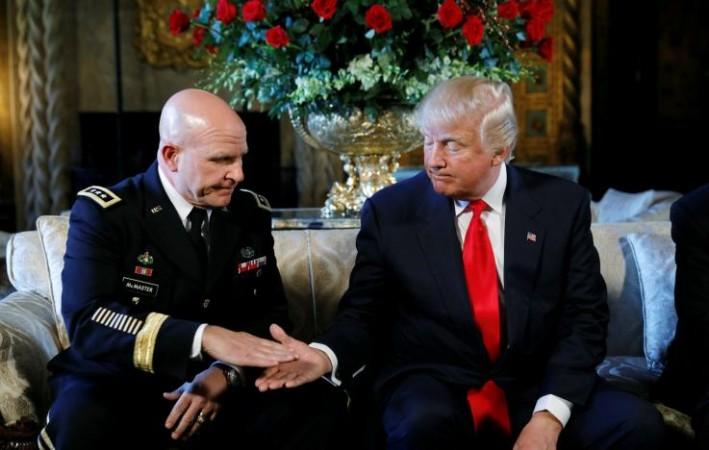
United States President Donald Trump on Monday chose a prominent military strategist, Army Lt. Gen. H R McMaster, as the new National Security Adviser. McMaster is replacing Michael Flynn, who was removed from his position last week over his links with Russia.
Robert Harward, Donald Trump's second pick for National Security Advisor, turns down job offer
Trump announced his pick at his Palm Beach, Florida, club and said that McMaster is "a man of tremendous talent and tremendous experience." McMaster, who was sitting next to Trump during the announcement, said that he was honoured to take on the role and he "looked forward to doing everything that I can to advance and protect the interests of the American people," the Associated Press reported.
McMaster, who is an active-duty officer and is also famously known as a creative thinker, wore his uniform for the announcement and will soon join Defence Secretary Jim Mattis and Homeland Security Secretary John Kelly, both retired generals, in Trump's inner circle of national security advisers.
The White House in a statement on Monday said that McMaster plans to remain on active military duty.
McMaster, who is viewed as a soldier-scholar, has a doctoral degree in history from the University of North Carolina and has been involved in the Army's efforts to formulate its future force. He is also the director of the Army Capabilities Integration Center, a sort of military think tank, at Fort Eustis, Virginia. McMaster has wrote a book in 1997 titled "Dereliction of Duty," which is a indictment of the U.S. government's mishandling of the Vietnam War.
Trump's second pick for the position of his National Security Adviser, Admiral Robert Harward, had reportedly turned down the offer. Harward told Associated Press that the Trump administration was "very accommodating to my needs, both professionally and personally." However, the refusal was "purely a personal issue" for him.
Trump's former National Security Adviser was removed from his position for hiding the details of the calls he made with a Russian diplomat. Flynn had made a phone call in December 2016 to Russian Ambassador to the US, Sergey Ivanovich Kislyak, soon after the Obama administration imposed new sanctions on Russia for interfering with the US elections. He had initially said that the duo had just discussed scheduling matters and the sanctions against Russia were not discussed. Trump affiliates, including US Vice President Mike Pence, had backed Flynn's claims at the time.
The White House had, earlier this week, released a statement saying that Trump had known that Flynn had not been truthful about his phone call with Kislyak. The statement also mentioned that Trump asked him to resign on Monday after it was clear that Flynn had lost his and Pence's trust.





!['Lip lock, pressure, pyaar': Vidya Balan- Pratik Gandhi shine in non-judgmental infidelity romcom Do Aur Do Pyaar [ Review]](https://data1.ibtimes.co.in/en/full/797104/lip-lock-pressure-pyaar-vidya-balan-pratik-gandhi-shine-non-judgmental-infidelity-romcom.jpg?w=220&h=138)







